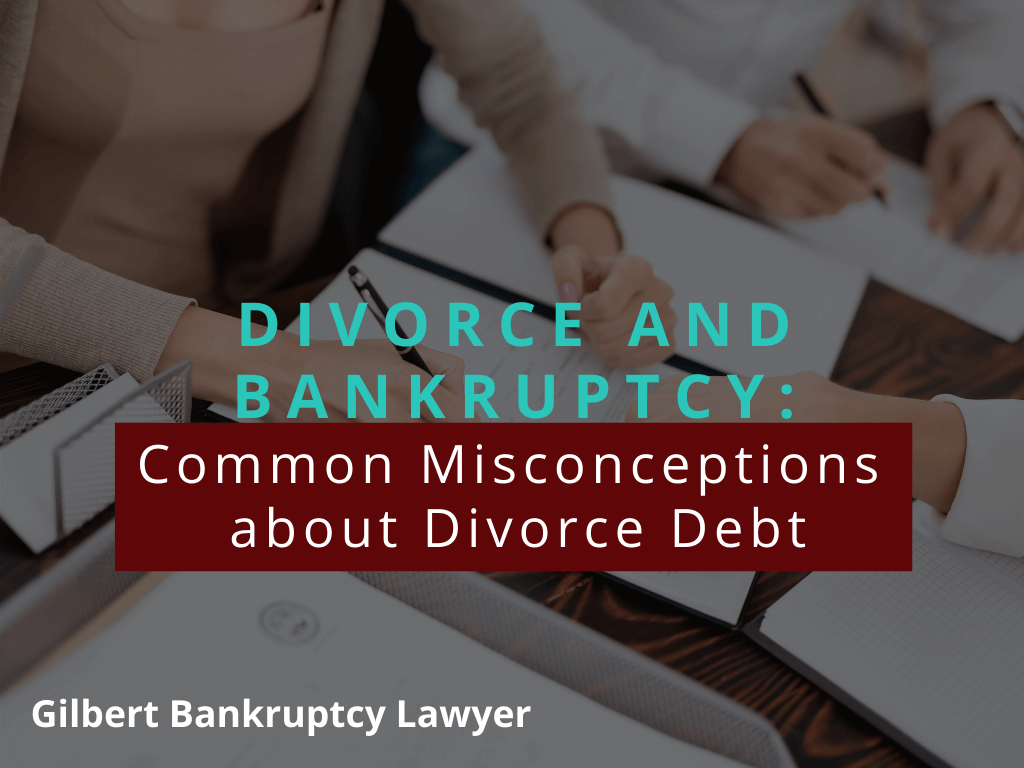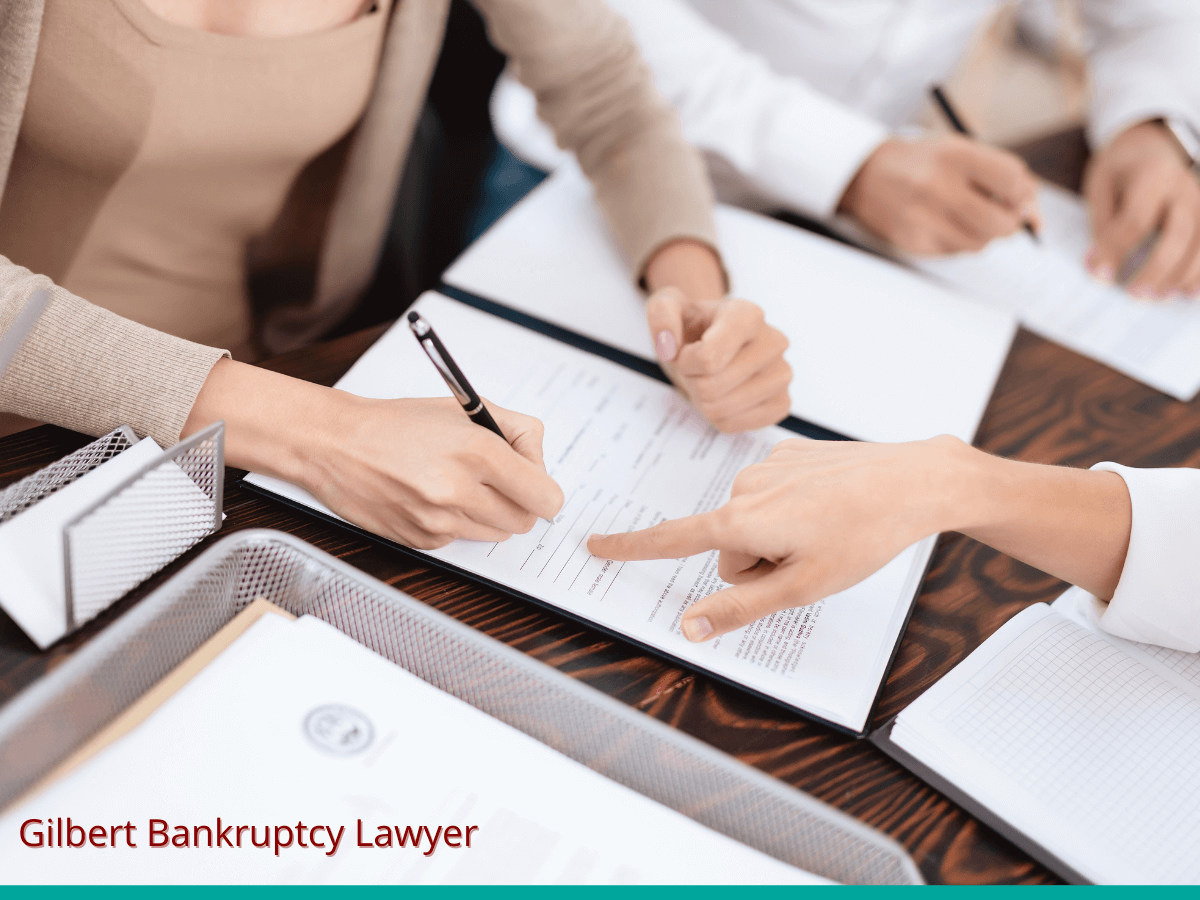Divorce and Bankruptcy: Common Misconceptions about Divorce Debt
Divorce and bankruptcy can both be complicated. Put them together, and you may have even more confusion. There are a lot of questions that will arise for which you’ll need the experienced counsel of your Gilbert bankruptcy attorney and your divorce attorney.
It’s important that you talk through some issues with your attorneys ahead of time so you know what to expect and you can plan appropriately. Here are a few common misconceptions that come up about divorce and bankruptcy:
The Debt Wasn’t in My Name, So I Don’t Have to Pay
You may not feel like you have anything to worry about if the debt was in your spouse’s name, such as a credit card or a car loan. However, if the debt was incurred during the marriage, the courts may look at it as community property. That is especially true if the debt was incurred for things used by the family, like an automobile.
When you divorce, you will need to specify the division of both assets and debts, including those that are in a singular name. Then, if you file for bankruptcy, you know which debts are your responsibility.
My Ex Took the Debt, So I Don’t Have to Pay
When you separate, you may decide for yourself who is taking which debts with them. Often, that will mean taking whatever debt was in your name and writing a check for those that were joint accounts. Or you will get the divorce, make a formal arrangement of who pays what debts and who keeps what assets. However, the divorce settlement is only between you and your ex – it doesn’t actually offer legal protection against creditors.
Your ex agrees to “indemnify” you against debts that he or she assumes in a divorce settlement. What that really means is they agree to pay it. But if they stop paying it, the creditors can still pursue you for the debt. You can take them to court for violating the divorce order, but if they don’t have the money to pay, there’s not much the court can do.
The best thing to do is take steps after your divorce to protect yourself, such as refinancing your debt into your name alone and encouraging your ex to do the same. You may also be able to give up your interest in the debt, such as by signing a quit claim deed for a property.
I Included the Debt in My Bankruptcy after the Divorce, So I Don’t Have to Pay
You may be the one who has to protect your ex from your creditors. When you divide your debts in the divorce, you are also responsible for paying them. Just because you file for bankruptcy in Gilbert and relieve your own obligation to the creditor to pay does not mean that your ex is off the hook. Bankruptcy doesn’t make the debt go away completely – it just makes it go away for you. But you still have your divorce agreement in which you agreed to satisfy the debt and keep your ex from having to pay it, and filing for bankruptcy won’t ensure that.
You will need to encourage your ex to take steps to dissociate from the loan, such as by signing a quit claim deed, refinancing accounts into their name, and so on.
There are a lot of scenarios that can arise concerning debts that you shared with your ex or that you incurred during your marriage. Right after divorce is a time that a lot of people look at bankruptcy because their incomes have been reduced and their living expenses have increased. Make sure you are working closely with a Gilbert bankruptcy attorney and divorce attorney to cover all your bases during this time.
Call Gilbert Bankruptcy Lawyers if you are thinking of filing bankruptcy and are in the middle of a divorce or have recently finished a divorce. We’ll help you understand the steps you need to take to get debt relief and protect yourself against liability. We can counsel you on what steps to take to protect yourself against future debt claims because of your ex. Call us today to schedule a free consultation to learn more about Chapter 7 bankruptcy and Chapter 13 bankruptcy and how they might help you get the debt relief you need.
Published By:
Gilbert Bankruptcy Lawyers
Office: 480-448-9800
Email: info@myazlawyers.com
Website: https://gilbertbankruptcylawyers.com

